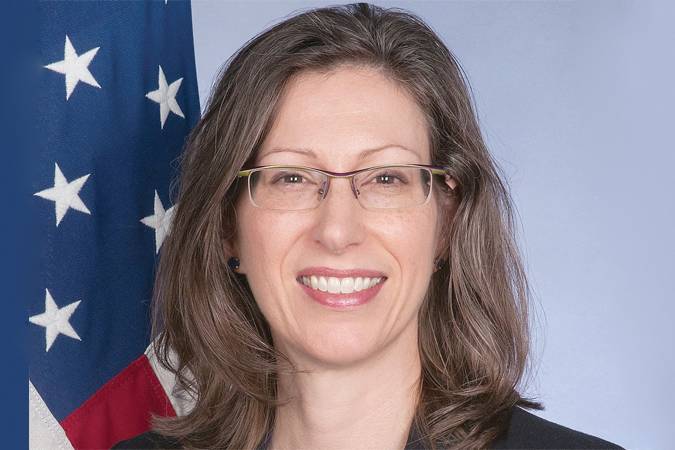The United States has questioned China’s trade deals with Sri Lanka and asserted the need to ensure that global standards of free trade and a fair investment climate are in place for the benefit of Sri Lankan and US businesses.
The US Ambassador to Sri Lanka Alaina B. Teplitz noted that the US believes partnerships between countries should be open, transparent, and mutually beneficial – and if this is what Sri Lanka’s relationship with China embodies, then the US will encourage it.
“Our concern is that Sri Lanka not be vulnerable in its relationships, and that this country is able to negotiate the best deals supporting sustainable, environmentally sensitive, and affordable results,” the Ambassador said in an interview with Daily Mirror.
She noted that a 2019 World Bank study concluded that more than 60 percent of PRC-funded BRI projects are allocated to Chinese companies and stressed that tender processes are opaque.
“The World Bank called for open and transparent public procurement to increase the likelihood that BRI projects are allocated to the firms best placed to implement them. Sri Lankan think tank Verité Research analyzed 50 high value loans from the PRC to Sri Lanka. All but one loan (where data was available) were 100 percent “tied” – meaning the loan terms dictated that contracts and tenders be awarded to Chinese contractors, limiting the ability of Sri Lankan and global firms to compete for these projects. Fair competition would lower prices and ensure better quality,” she said.
The Ambassador noted that Sri Lanka is a sovereign nation and it is not up to the United States to dictate the quality of Sri Lanka’s partnerships, but the US does believe it is better for countries if transactions are transparent and cost-effective, and if they create jobs and other material benefits for local people.
“It’s important that global standards of free trade and a fair investment climate are in place for the benefit of Sri Lankan and U.S. businesses,” she said. (Colombo Gazette)

